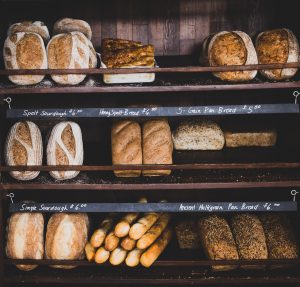 At One Love Fit Club in Chino Hills, CA, I make it my mission to provide the best information to help you become fitter, which is why I sometimes focus on diet in the blogs. I get a lot of questions about diet. With the popularity of the Caveman and Primal diet, there are a lot of questions about grains and whether they’re harmful to your digestive health and overall health. There is a lot of information to indicate there are some problems digesting it, but also reasons to consume grains, such as the nutrients it contains.
At One Love Fit Club in Chino Hills, CA, I make it my mission to provide the best information to help you become fitter, which is why I sometimes focus on diet in the blogs. I get a lot of questions about diet. With the popularity of the Caveman and Primal diet, there are a lot of questions about grains and whether they’re harmful to your digestive health and overall health. There is a lot of information to indicate there are some problems digesting it, but also reasons to consume grains, such as the nutrients it contains.
Grains are hard to digest.
Grains are seeds, which have a tough outer coating to protect the potential offspring. They’re often spread by an animal consuming them and passing them through the intestines. They need to be hard to digest to survive the digestive process. Those seeds can also cause diverticulitis. We tend to eat grains in the form of flour, which seems to solve that problem. However, refined flour is processed and removes the bran and the germ, where most of the nutrients are, leaving only the endosperm. So it doesn’t affect digestive health, but supplies almost empty calories.
If you use whole grain flour, you may face other digestive issues.
Whole grains are considered a healthier option, since they provide more nutrition and digest slower, reducing the potential for blood sugar spikes. However, many of those same grains contain gluten. Gluten is a hard to digest protein. Because of breeding to increase yield, much of our wheat has a higher gluten content. That causes it to be even more difficult to digest.
As seeds, grains contain enzyme inhibitors.
Every human depends on enzymes to keep their body functioning. They’re the catalysts that gets digestion started. Without enzymes, no digestion would take place. Plants also contain enzymes that start the growth process by making food available. They also have enzyme inhibitors that prevent that from occurring until conditions are right, such as adequate water, soil and heat. They also prevent the seeds from getting destroyed in the digestive tract. When you consume seeds, these enzyme inhibitors can block the bodies enzymes and play havoc on digestion.
- Seeds contain phytic acid that can block absorption of important nutrients such as iron, zinc and calcium. While modern processing methods remove the good nutrients, they don’t remove the phytic acid.
- Soaking, fermenting and sprouting grains are ways to make grains easier to digest. It helps remove the phytic acid, while also aiding in breaking down the is one way to make them easier to digest by removing some of the phytic acid and aiding the break down of disaccharides.
- Food reactions to grains like gluten and disaccharide intolerance may have developed because of the ways grains are processed and enzyme inhibitors.
- Stick with whole grain food. Find bread made with sprouted grain or whole grains made by fermenting, like sour dough, especially if you’re having digestive problems.
For more information, contact us today at One Love Fit Club
 13609 Central Ave, Ste E Chino, CA 91710
13609 Central Ave, Ste E Chino, CA 91710
